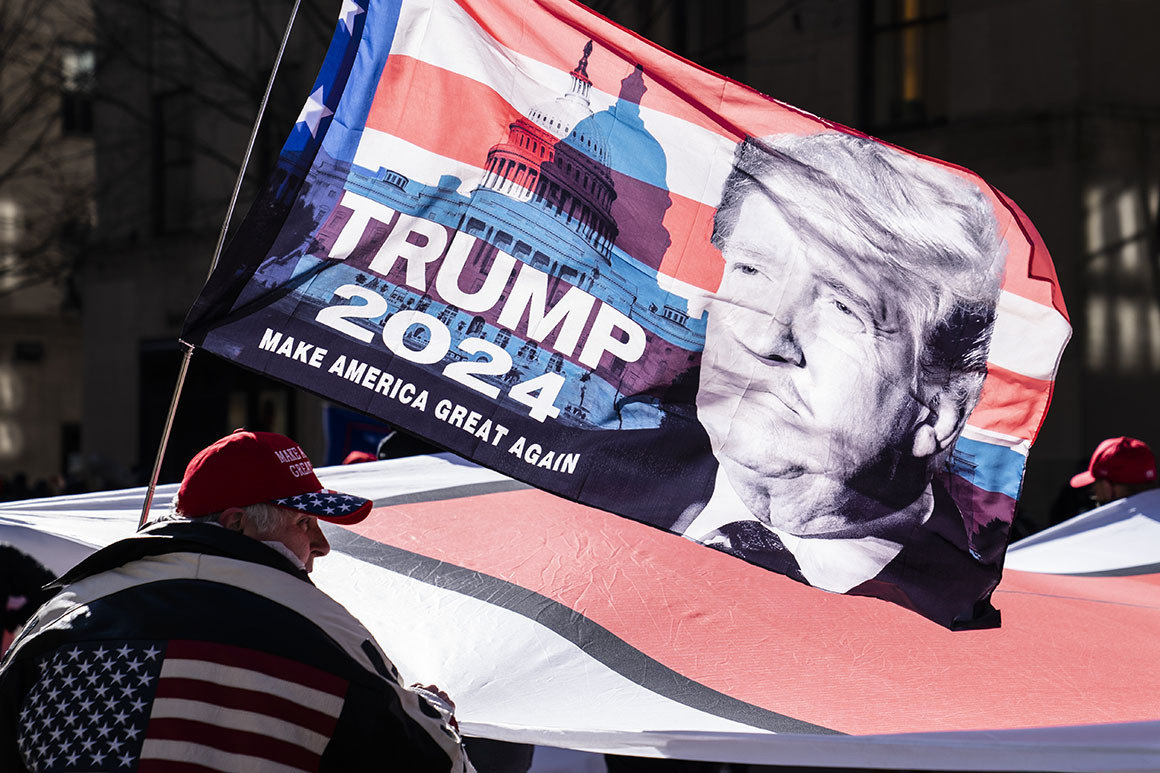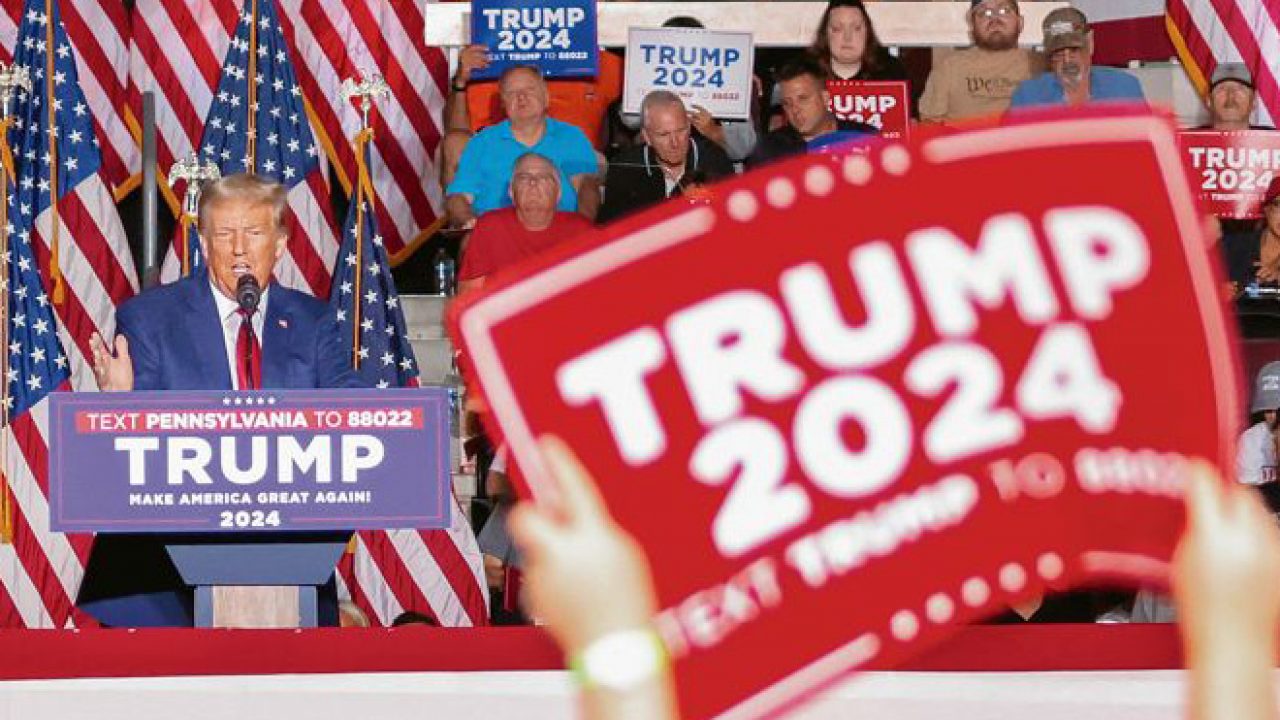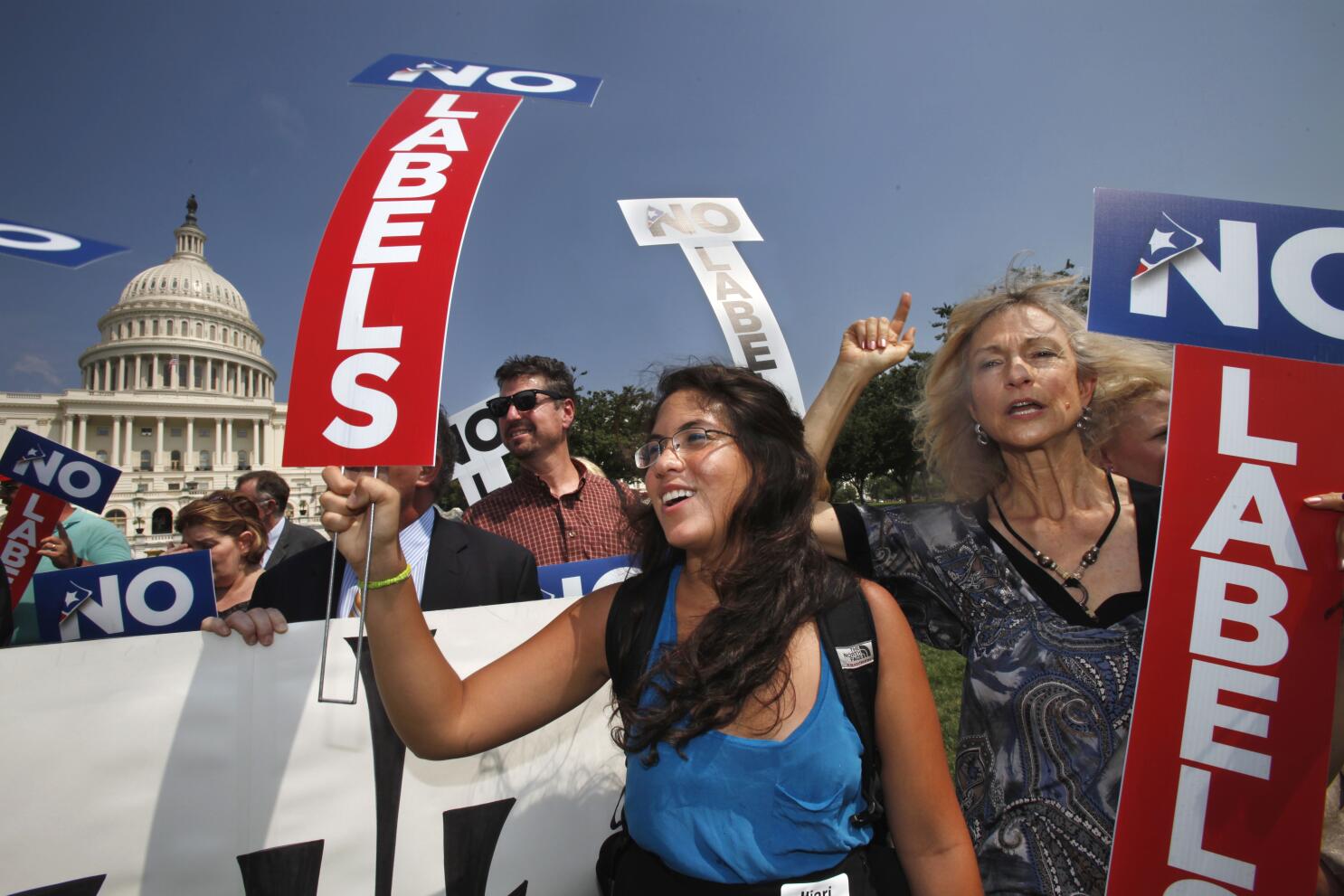United States
Well-Funded DC Centrist Group Works to Guarantee a Trump Win in 2024

No Labels, a well-funded Washington, D.C.-based centrist organisation, promotes itself as “an organisation of Democrats, Republicans, and independents working to bring American leaders together to solve problems.”
Instead, the organisation appears to seek to build one during next year’s presidential election.
Third Way, a Democratic-aligned nonprofit organisation, charged No Labels on Tuesday with arranging a “radical new plan” to prevent President Joe Biden from gaining an Electoral College majority.
The strategy entails running a well-funded third-party candidate in crucial states before sending the election to the Republican-controlled House of Representatives, where former President Donald Trump would almost certainly win, the New Republic reports.
“No Labels has made it abundantly clear that their new plan is to put a Republican at the top of their ticket,” Third Way stated in a memo published on Tuesday. “And, because they can’t win the presidency outright, they’ve indicated that they intend to use the 270 Electoral College votes to exert leverage over the winner.”
That daring new idea would guarantee Trump a second term.”
Such a result would be disastrous for American democracy. If Biden’s popularity continues to dwindle, Trump may win the 2024 presidential election on his own, which would be perilous in and of itself.
A contingent election in the House of Representatives, on the other hand, would exacerbate the problem by completely bypassing the will of the American public in favour of a two-century-old process that has previously destabilised the country.
In an undated FAQ on its website, No Labels has denied that this is what it seeks to achieve. “No Labels is solely getting ballot access,” it asserted. “That’s all there is to it.
We are not running for president. No Labels will not lend our ballot queue to an independent Unity ticket until it has a realistic prospect of winning the Electoral College outright.” (An “independent Unity ticket” has no prospect of winning the Electoral College outright.)
Third Way, on the other hand, cited more recent statements by No Labels staff as well as some of their published publications. No Labels’ senior strategist, Ryan Clancy, told CNN in May that the organisation may use its electoral votes as a “bargaining chip” with one of the two major-party candidates to avoid a new election.
Because Trump would almost likely win a contingent election and would have little motivation to avoid one, “negotiating” with Biden would be necessary.
In an article published in August on RealClearPolitics, No Labels highlighted a contingent election as one potential avenue to “win” a presidential election, detailing previous occasions where a small faction was able to influence the outcome.
Political scientists argue what would happen in such a contingent election in modern times, but 1824 demonstrates that the path to the Oval Office can be more improbable than voters typically believe,” it ended sarcastically.
Third-party candidates are almost always hopeless in American politics. They lack the public support and political infrastructure to undertake meaningful presidential campaigns.
The most recent successful attempt occurred in 1992, when Texas businessman Ross Perot funded a competitive challenge to Republican incumbent George H.W. Bush and Democratic opponent Bill Clinton. Nonetheless, Perot failed to garner a plurality of votes in any single state, something no third party has done since 1968. Since the 2000 presidential election, third-party candidates have frequently been viewed as spoilers who could influence a close election.
That appears to be the intention of No Labels. The majority of its public-facing publications emphasise its desire for ballot access in all 50 states and the District of Columbia.
Other polling documents, however, emphasise that the group’s best chance of success is to run a Republican candidate like former Maryland Governor Larry Hogan in states which Biden won by the smallest of percentages in 2020, like as Arizona, Nevada, Michigan, Wisconsin, and Georgia.
In those conditions, polling indicates that Trump gets a modest advantage as Hogan (or another No Labels contender) attracts anti-Trump Republicans away from Biden.
This method is based on taking advantage of a defect in the American constitutional order. In most presidential elections, the popular vote winner also receives 270 electoral votes in the Electoral College. This usually makes selecting a president quite simple.
The Electoral College also allows a candidate to receive at least 270 electoral votes without receiving a popular vote. Donald Trump was the most recent contender to do this in 2016, marking the fifth time in American history.
But what if no candidate receives 270 electoral votes? Almost all American elections simply deliver the office in question—a Senate seat, a governorship, and so on—to the person who obtains the greatest number of votes. However, there is a backup process in place for presidential elections.
If no candidate obtains a majority of the total number of electoral votes, the Electoral College is unable to select a winner. The House of Representatives is then required by the Constitution to elect a new president, and the Senate is required to elect a new vice president, in what are known as contingent elections.
This system includes a unique manner of balloting: instead of House members casting individual votes, each state receives a single vote, and members from each state vote on who should receive it.
Wyoming’s solitary congressman, for example, would almost certainly vote for a Republican candidate, whereas California’s 53-member delegation would almost certainly vote for a Democratic candidate. Republicans control a majority of House state delegations due to partisan gerrymandering in red states and other basic aspects of American political geography.
While dependent elections have occurred three times in American history, none have occurred in nearly two centuries. The first time was in 1800, during the second presidential election. After 35 ballots cast over a six-day period in 1801, the House eventually elected Thomas Jefferson. Because the vote was complicated by the fact that the person with the second-most votes would become vice president, Congress and the states enacted the Twelfth Amendment, which established separate ballots for president and vice president.
The second case is more well-known. A presidential candidate needed 131 electoral votes to win outright in the 1824 presidential election. The states eventually chose four candidates: John Quincy Adams, Andrew Jackson, Henry Clay, and William Crawford. Jackson earned a majority of both electoral and popular votes. However, Clay backed Adams, and their combined blocs of states delivered Adams a majority over Jackson.
That manoeuvre shook the early republic’s politics. Many of Jackson’s supporters called Clay’s manoeuvre a “corrupt bargain,” especially after Adams chose Clay to be his secretary of state. The Democratic-Republican Party split, with Jacksonians founding the contemporary Democratic Party. Their electoral triumph in 1828 established the two-party system, as well as the sectional and political turmoil that would lead to the Civil War.
The final example is also the most instructive. In 1836, Jackson declined to seek for a third term and named Martin Van Buren as his successor. Van Buren easily won the popular vote as well as the electoral vote. Richard Mentor Johnson, his running mate, did not. Because of his publicly documented relationship and common-law marriage with an enslaved woman, Virginia delegates acted as faithless electors and refused to vote for Johnson to become vice president.
Because no vice presidential candidate received a majority of electors, the Senate had to choose one. They overwhelmingly chose Johnson. Though Johnson eventually won, his contingent election demonstrated how one faction may divert a close presidential or vice presidential race away from the Electoral College, where Democrats have at least some chance of winning, and into the hands of a gerrymandered House of Representatives.
No Labels, for its part, has repeatedly stated that it would only field a candidate in 2024 if they had a realistic chance of winning 270 electoral votes.
However, because that is nearly unachievable in modern American politics, their plan would instead channel affluent donors’ finances into a kamikaze campaign that would only make it more difficult for one party’s candidate to win the White House.
Trump’s election in 2016 was already destabilising because he did not receive a majority of the public vote, leaving him with all the authority but no democratic mandate or legitimacy to back it up.
His failure and subsequent coup attempt in 2020 effectively ruined the country’s two-century pattern of orderly power changes.
If Trump reclaims the presidency because No Labels made it possible for him to win even without a majority in the Electoral College, why would anyone ever have faith in this country’s democratic procedures again?
Trump and Imran Khan’s Legal Cases Are They Political Hit Jobs?
Trump and Imran Khan’s Legal Cases Are They Political Hit Jobs?


































